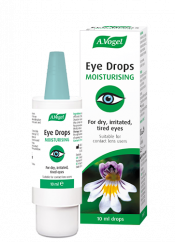What causes eye strain?
Eye strain can be caused by a variety of factors. In general, poor lighting, focusing closely on an object or spending a long time on one task can all cause problems.
The most common causes are:
- Reading up close for long periods of time, especially in dim light.
- Driving for long periods of time. Generally speaking, we blink less often when driving, and focus our eyes on the same distance for most of the journey. Bright sunlight can also contribute to eye strain when driving.
- Using a computer, smartphone, tablet or games console for too long. Focussing on bright screens and blinking less often whilst using these can also strain your eyes.
- Deteriorating eyesight. Sometimes this can be a sign that you may need to get glasses or increase your current prescription.
What are the signs of eye strain?
There are several signs that may indicate the eyes are feeling the strain of your lifestyle, including:
- Headaches
- Dry eyes
- Tired eyes
- Sensitivity to light
- Itchy eyes
- Blurred vision
- Difficulty focusing
To address symptoms like dry eyes and itchy eyes, you could try using some of our Moisturising Eye Drops. By restoring moisture to the eyes, these drops can be very soothing and comforting. If you are working at a computer all day, keep some handy for when your eyes are feeling the strain.
For other symptoms like headaches, try my tips listed below. If these fail to bring any improvement, however, make sure you talk to your optician who will be able to offer further advice.
My Top Tip:

Put 1 drop in each eye, 4-5 times daily, or more often if required.
"Excellent drops. Keeps my eyes moisturised."

How do you avoid eye strain?
As explained, lifestyle is often to blame for eye strain. This means that adopting some simple lifestyle changes can help bring about relief from symptoms or help to avoid developing eye problems in the first place.
Take a break
Give your eyes a break by following the 20-20-20 rule. Every 20 minutes, look away from your screen or book and re-focus your eyes on something 20 feet away. You should do this for 20 seconds – hence it is called the 20-20-20 rule!
Alternatively, simply turning to look out of the window regularly will be just as positive for the health of your eyes!
Get your eyes tested
Get your eyes tested to determine if A) you need glasses or B) your prescription needs to be updated. It is recommended adults get their eyes tested every two years to check for any changes.
Blink!
It seems obvious but we actually do this less often when working on computer-based tasks. So, try to make a conscious effort to blink frequently. Another tip is to close your eyes for 10 seconds every so often. Try doing this when you go to the loo - if nothing else it's an excuse to have a few seconds of peace and quiet!
Placing a note on your computer reminding you to blink is another handy tip!
Move more
Have regular breaks from the computer by getting up and moving around. Stretch your body, walk up and down the stairs or make a cup of tea. You can take a look at our blog 'Easy stretches to do at your desk' if you'd like some examples of stretches you can do at work.
The same goes for activities like reading, where your eyes must focus on something quite small for an extended period of time - get moving and your eyes and joints will feel the benefit.
Revise your workspace
Have a member of HR check your office space to ensure the lighting is right both in the office and on your computer. An anti-glare screen can be placed on the computer and there are also various settings on a computer so you can dim the light.
If you work from home, try to set up office in a room with lots of natural light and dim your computer's glare right down. We may be tempted to take fewer breaks when working from home, or to work for longer, so just ensure you stick to a routine whereby you get up and moving regularly.
Try a humidifier
A humidifier creates moisture in the air, so it can be a helpful way to reduce the chance of developing dry, tired eyes. If possible, try it out in your office or living room – wherever you are likely to spend the most amount of time.
Try different activities
If you are spending a lot of time indoors, break up the time spent using computers and tablets with other activities.
You can check out some of our exercises to do indoors or take up a new activity altogether – gardening (even if it's just a few pots on your windowsill!), walking, DIY projects and board/card games are just a few ways in which you can occupy your time without having to use technology.
Wear sunglasses
When the sun is bright, make sure you wear sunglasses, particularly when driving with the sun low in the sky.
To ensure your sunglasses are high quality, look out for the British Standard kitemark or CE mark. This means they are protective against harmful UV light.
With all these steps in place, your eyes should soon feel the difference!
Results: What helps your tired, dry eyes?






 Looking for help to ease those dry, tired and irritated eyes?
Looking for help to ease those dry, tired and irritated eyes?

